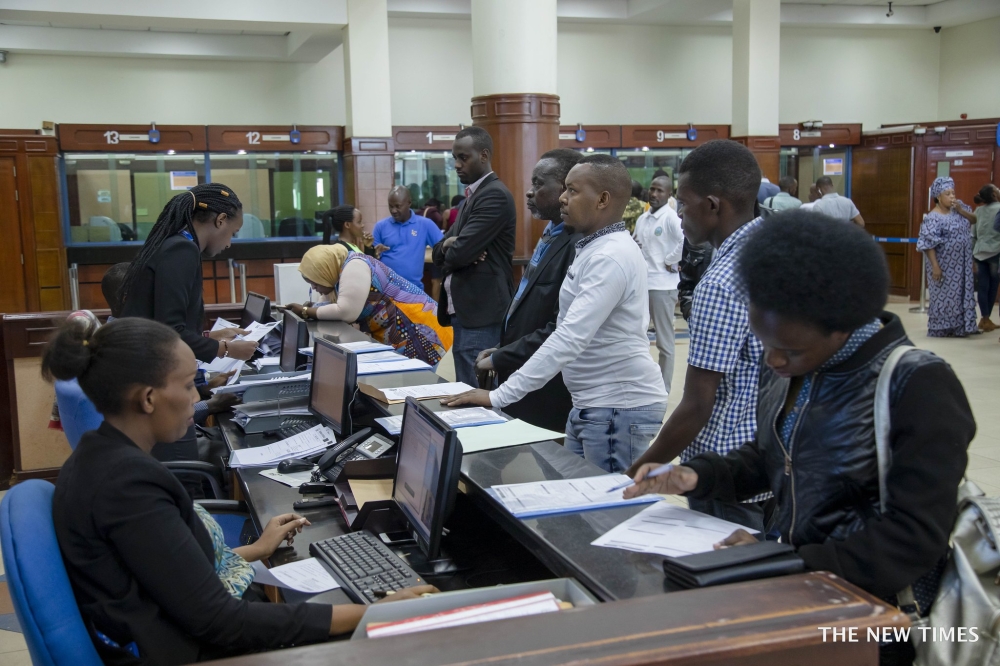The Rwanda Bankers Association (RBA) has clarified that the issue of language in contracts given to clients seeking loans has been addressed and that different language options are available, but cited lack of awareness.
The language issue was raised by members of parliament on last week during a parliamentary session where the Governor of the National Bank of Rwanda was presenting the 2023/2024 annual report.
Senator Evode Uwizeyimana was particularly vocal about the language challenge, saying that loan contracts are often written in foreign languages that people do not understand, which can negatively affect them.
He explained that many people sign documents without fully understanding them, driven by their immediate need for the loan.
“If you give someone a loan in a contract they don’t understand, you might include a 16 per cent interest rate on o“If you give someone a loan in a contract they don’t understand, you might include a 16 per cent interest rate on one page, and on another, you could add processing and management fees that raise the total rate to 25 per cent, all without the customer noticing,” he said.

The Rwanda Bankers Association (RBA) has clarified that the issue of language in contracts given to clients seeking loans has been addressed and that different language options are available.
Uwizeyimana also pointed out that many banks provide English-language contract samples, only changing names and dates, and called for stronger enforcement of proper language use in loan agreements.
His colleague, Jean-Pierre Dusingizemungu, added his voice to the concerns, noting that it is not enough to just translate the contracts, as he called for the simplifying of the language as well.
“The contracts can be translated to Kinyarwanda, but they should be in simple Kinyarwanda, not just a direct translation from other languages. The language should be clear and easy for everyone to understand,” he said.
However, speaking to The New Times on November 27, Hannington Namara, the Chairman of the RBA, said all banks have contracts in the three official languages including Kinyarwanda. He called upon borrowers to always make it a point to select their preferred language and take time to internalize the contents of the contracts.
“The issue of language barrier in loan contracts has been addressed over the past two years. Before that time, only English contracts were provided, but the situation has since been resolved,” he noted.
He further explained that clients who cannot read and write and may not trust bank employees, can seek assistance from notaries, as all loan contracts are signed in their presence.
He assured Rwandans that loan contracts are written in a clear language, outlining the loan amount, interest rates, repayment terms, the reason for the loan, and collateral details, including the consequences for non-payment and how the borrower can retrieve their collateral after full repayment.
How has less scrutiny affected loan seekers?
Verelie Mujawamariya, a 42-year-old businesswoman based in Nyarugenge District, shared her experience with The New Times about how she was affected by carelessly signing a loan contract. She says she was shocked to discover that the interest rate she expected to pay was much lower than the actual rate.
“I took a loan of Rwf3.5 million last year, but I didn’t carefully review the terms of the contract. I was under the impression that the interest rate would be 17 per cent, but later discovered that the actual rate was 21 per cent annually,” she said.
“This miscalculation put me under a lot of financial strain, as the monthly repayments turned out to be more than I had initially budgeted for,” she added.
Mujawamariya calculated that at the expected rate of 17 per cent, her monthly repayments would have been around Rwf181,000. However, with the actual 21 per cent interest rate, her monthly payments increased to approximately Rwf213,000.
